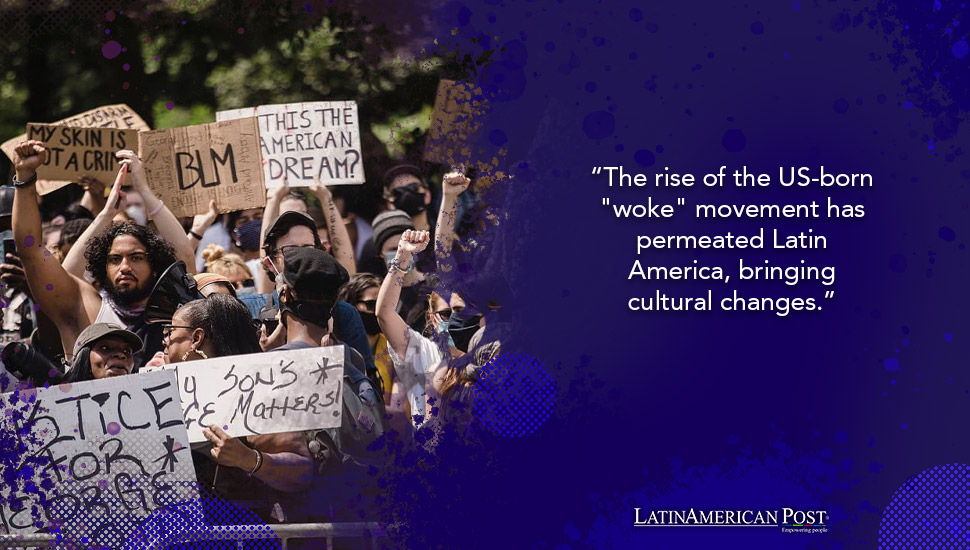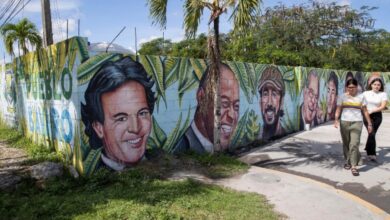The Woke Movement: A US Import Misguided in Latin America

The rise of the US-born “woke” movement has permeated Latin America, bringing cultural changes. But as it takes root in the region, many argue that its opposing sides—censorship, polarization, and identity politics—create more harm than good.
The “woke” movement emerged in the United States as a response to social injustices. Its roots are progressive activism focused on racial, gender, and social inequalities. Initially, it represented a collective awareness of systemic issues such as police brutality, discrimination, and inequality, primarily highlighted by the Black Lives Matter movement. The term “woke” was derived from African-American Vernacular English (AAVE) and originally referred to being “awake” to social injustices.
As the movement gained traction in the US, it also broadened its scope, touching on various social issues, including LGBTQ+ rights, climate change, and feminism. Its core principles revolve around advocating for marginalized groups, demanding accountability, and calling out perceived wrongs through “cancel culture,” where individuals or entities are socially ostracized for offensive actions or comments.
However, as the movement expanded, critics pointed to its extreme aspects, such as an overemphasis on identity politics, cancel culture and intolerance for opposing views. These aspects have now permeated Latin America, leading to social and political shifts. The question arises: Is the woke movement beneficial for Latin America, or is it sowing division and stifling constructive discourse?
Cultural Import with Negative Consequences
As the woke movement traveled from the US to Latin America, it brought a range of ideals that do not always align with the region’s cultural, social, and historical contexts. One major issue is that the US’s brand of wokeism tends to view social problems through an overly Americanized lens. Topics such as race relations, gender identity, and colonialism, while relevant, are vastly different in Latin America compared to the United States.
The movement’s influence has grown among younger urban populations in Brazil, Mexico, and Argentina. However, the introduction of woke ideals, often through the media and academia, can sometimes feel disconnected from the realities that people in the region face. For example, while anti-racism movements are vital, Latin America’s ethnic dynamics are complex, with a long history of mestizaje (racial mixing) and social stratification that cannot be easily understood through the binary lens of “white versus non-white” that dominates US discourse.
The woke movement’s focus on identity politics—where personal identity (race, gender, sexuality) often trumps broader concerns—can also detract from more pressing local issues such as economic inequality, corruption, and crime. In countries struggling with high levels of poverty and violence, the focus on language policing and cultural appropriation can seem out of touch and trivial to many who are fighting for fundamental rights and survival. As a result, the movement can alienate working-class populations that may see it as the domain of elite urban intellectuals.
Cancel Culture’s Dangerous Impact on Free Speech
One of the most problematic aspects of the woke movement in Latin America is the importation of “cancel culture.” In many parts of the region, cancel culture has gained momentum as individuals, brands, and even artists are publicly shamed and ostracized for comments or actions deemed offensive or politically incorrect. While holding people accountable is necessary, cancel culture can quickly devolve into mob justice, stifling debate and silencing individuals.
An example is the Argentine writer and journalist Jorge Fernández Díaz, who was “canceled” after commenting on the dangers of political correctness and identity politics in the media. Despite a long career of thoughtful commentary, social media users condemned his remarks, accusing him of being out of touch with progressive values. Instead of sparking meaningful dialogue, his opinions were dismissed outright, leading to his temporary sidelining in literary and academic circles.
Cancel culture also risks stifling Latin America’s long tradition of rich cultural exchange and debate. For instance, in Mexico, the question of cultural appropriation has become a flashpoint, particularly regarding the use of indigenous symbols and practices in art and fashion. While respecting and honoring indigenous cultures is essential, the blanket condemnation of cultural borrowing can lead to unnecessary divisions and inhibit creativity.
Furthermore, cancel culture does not account for the often-overlooked fact that Latin American societies are already polarized, particularly along class and political lines. Adding the woke movement’s insistence on purity tests—where one must adhere strictly to progressive ideals—risks deepening these divisions. Rather than fostering understanding and unity, it encourages people to retreat into their ideological bubbles, dismissing dissenting voices as morally inferior.
Identity Politics and the Fragmentation of Latin America’s Struggles
One of the biggest criticisms of the woke movement in the US is its over-reliance on identity politics, where one’s race, gender, or sexual orientation is the defining aspect of their political or social identity. While identity is important, placing it above all else can lead to a fragmented society, where people are more concerned with their own group’s issues than broader social solidarity.
In Latin America, this approach can be particularly harmful. The region has long suffered from class divides and income inequality, and while issues of race and gender are important, focusing exclusively on identity can take attention away from the economic struggles that unite large portions of the population. For example, in Brazil, while there are vital conversations to be had about race and inequality, focusing too heavily on racial identity risks overshadowing the fight against economic policies that exacerbate inequality for all marginalized groups.
Moreover, this kind of fragmentation can weaken movements for broad social change. In Chile, for example, the recent protests against inequality were initially unified across various sectors of society. However, as identity politics seeped into the movement, the focus began to shift from collective struggles against the government’s economic policies to more niche issues related to gender and sexuality. While these issues are important, the movement lost some of its broad-based appeal, leading to divisions within the ranks.
Latin America has a long tradition of collective social movements prioritizing economic justice and equality for all. The woke movement’s emphasis on individual identity politics risks undermining this tradition. It creates a fragmented society where people are more concerned with their own group’s issues than building a more just society.
The Erosion of Latin American Traditions and Values
Another significant issue with the woke movement’s infiltration into Latin America is its tendency to erode traditional cultural values and practices. Latin American societies are often deeply rooted in traditions tied to family, religion, and community. While challenging outdated or harmful practices is essential, the woke movement’s approach can feel like an attack on these traditions, creating a backlash from more conservative sectors of society.
In countries like Mexico and Colombia, the woke movement’s focus on gender and sexuality has led to tensions with more traditional communities, particularly in rural areas where Catholic values remain strong. For example, the push for gender-neutral language and the redefinition of family structures have been met with resistance from people who view these changes as a direct challenge to their cultural and religious values.
The woke movement’s approach to these issues often comes across as condescending, as if Latin Americans must adopt US-style progressivism to be morally or culturally “correct.” This attitude can alienate people who might otherwise be open to social change but feel their values are under siege. Instead of fostering dialogue and understanding, the movement’s approach often fuels cultural clashes and deepens divides between urban progressives and rural conservatives.
Moreover, the movement’s obsession with decolonization—a concept that involves questioning colonialism’s legacy in shaping current societal structures—has led to movements calling for the toppling of statues, renaming streets, and reassessing historical figures. While it is crucial to critically examine colonialism’s legacies, applying these frameworks without context can erase essential aspects of Latin America’s complex history.
A Better Way Forward
There is no denying that Latin America faces severe social challenges, including racism, gender inequality, and marginalization. However, the woke movement’s methods, rooted in divisive identity politics, cancel culture and imported American ideals, are not the solution. Latin America’s strength has always been its ability to unite diverse groups to fight for common goals, such as economic justice, democracy, and social equality.
Instead of importing a movement that divides people along identity lines, Latin America would be better served by fostering inclusive movements that focus on economic and social issues that affect everyone, regardless of race, gender, or sexuality. In countries like Uruguay and Costa Rica, social movements have successfully advocated for progressive policies by focusing on broad-based issues like healthcare, education, and workers’ rights rather than falling into the trap of identity politics.
Additionally, movements in Latin America should continue to emphasize the importance of cultural and historical context. Social change cannot come from imposing American ideals onto Latin American societies; it must come from within by building on the region’s traditions of collective action and social solidarity.
The Woke Movement and Its Misguided Influence
The US woke movement has permeated Latin America, but its negative aspects—identity politics, cancel culture, and its disconnection from local realities—harm more than help. Focusing on social division rather than unity, the movement distracts from the issues that matter most in the region: economic inequality, corruption, and the fight for democracy. Latin America must address its challenges independently, fostering inclusivity and unity rather than importing a divisive and polarizing movement.
Also read: Backlogged and Forgotten: Latin America’s Struggles in the U.S. Immigration System





